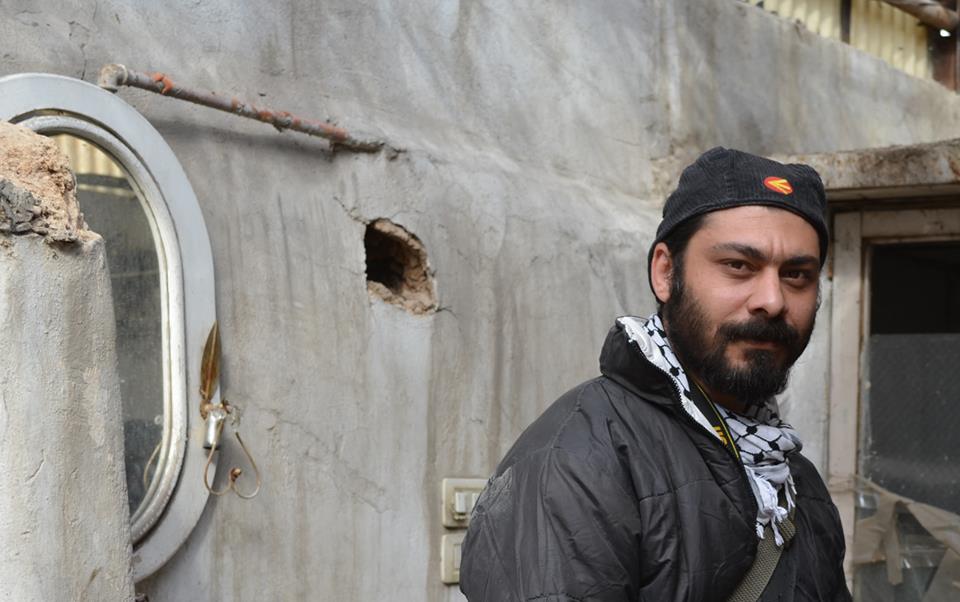Salamiyah today joins the rest of the revolution's cities as it is exposed to the same deprivation and starvation as they have been. Just as it joined them in Syria's popular revolution in March 2011, here it is today, together with them in the journey of hunger and thirst that Assad's forces have imposed upon the rebellious of the Syrian people.
Since over a month ago, the city is straining under the weight of thirst, the weapon of the cowardly in the face of the brave, and since over two years ago, the city and its people have been exploited and desecrated at the hands of Assad's men, the thugs of this age and the symbols of its shaky stage. While Salamiyah's young men and women were among the first activists of the city, many of them disappeared into the prisons, and those of whom were destined to survive have fled, escaping death and abuse.
Today the case of the cutting of water from the city is added to the sum of catastrophes that the people of Salamiyah are living through. According to one of the city's residents, “in over a month, the water only came to the city only once, and for the past months and years, water would only come once and only for a couple of hours”. It is a collective punishment, according to several of the city's activists, as the Salamiyah that rebelled against Assad's rule, and held large mass protests in the summer of 2011, is being exposed today to a bitter retribution from Assad and his men from the region itself.
Nothing invites sadness more than seeing the city slowly dim away, to see the space for life slowly fade until it is almost nonexistent. The matter is not exclusive to water being deprived from the houses of the “people of generosity” [as the town’s people are known], as it is now now impossible for the city's poor to buy a usable water tank. According to one of the city's residents who didn't want his name not be mentioned in fear of retribution from the “nation's protectors,” it now costs a minimum of, and often exceeds, 1600 Syrian Pounds to fill a tank of 17 barrels. While many families can purchase water only good for domestic use, the overwhelming majority of the city's poor are unable to get even half a tank, which has pushed them to think of other ways to obtain water. Some families have, due to the lack of alternatives, resorted to collecting rain water, and some neighborhoods have agreed on drilling a well in the middle of the streets, despite knowing the pollutive effect it will have on the city's groundwater.
To make matters worse for the city's residents, there have been several cases of swine flu in the city over the past few months. According to a doctor in the city who preferred to remain unnamed, there are no exact numbers, but several cases have been documented, and it has lead to the death of several patients. And while there are no official statistics as to how many have died from the disease, it is at least seven, including Maan Wardah, Mohammad Said, and Mohammad Eid. The doctor said that there has been extreme silence from state institutions over the size of the disease, the affected areas, the names of its victims.
Activists have reported roughly 22 have passed away from the disease over the past two months. Several media outlets have covered the spread of swine flu in ISIS-controlled Raqqa province, neighboring Salamiyah to the north.
And according to one of the city's doctors, it only took a few hours for the patients' health to deteriorate, and within this short period, they suffered from strong fevers and fatigue, in addition to violent coughing, dryness of the throat, and chest pains. While the doctor said one of the main reasons this disease has spread is a lack of drinkable of water and malnutrition, the more important factor is the amount of corpses out in the open in the rural areas surrounding Salamiyah.




